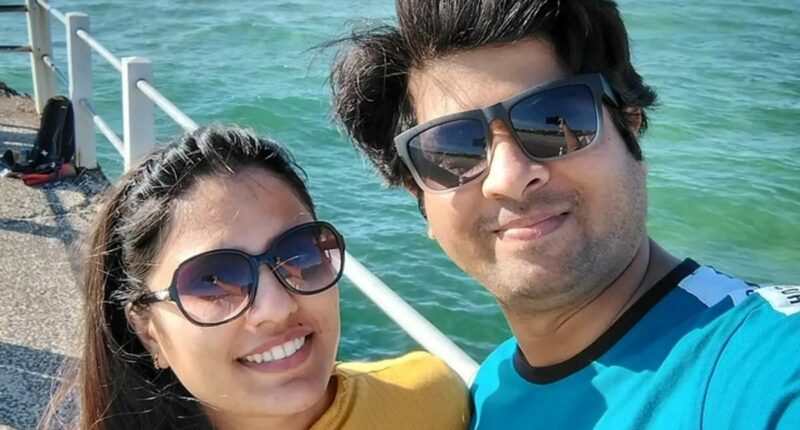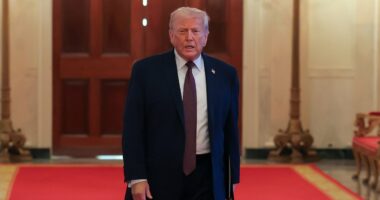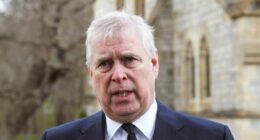Share this @internewscast.com
Indian-Australians are expressing their discontent with an anti-migration movement that they believe unfairly targets their community. They have countered with facts regarding Indian migration to Australia.
The group, March for Australia, is organizing protests for Sunday, criticizing ‘endless migration, weak leadership, and political cowardice’ for altering the country in ways they claim most Australians did not consent to.
The movement released a manifesto earlier this week, focusing on Indian-born migrants and claiming their increasing population has ‘replaced’ Australian culture.
‘More Indians have arrived in five years than Greeks and Italians have in 100 years from one country alone. This isn’t a minor cultural shift – it’s outright replacement,’ the group stated.
But Indian-Australians have struck back, accusing the organisers of peddling fear and misinformation.
Indian Australians are contributing significantly by working hard, paying more in taxes than they receive in benefits, holding essential jobs, starting businesses, and enhancing Australia’s culture,’ Jay, an Indian migrant, expressed on Facebook, asserting his pride in being Indian Australian.
‘Migration, done the Australian way, is a win-win for everyone.’
He referred to data indicating that 79 percent of Indian-born Australians participate in the workforce, compared to the national average of 61 percent, and emphasized their higher median weekly income of $1,015 compared to $805 nationally.
‘Higher taxes, stronger economy,’ he said.
He then dismantled common anti-immigration talking points one by one.

Indian migrant Jay has shared a fact check about Indians in Australia

‘Skilled migrants fill shortages. More workers means more demand which mean more jobs,’ he said.
‘Myth: They overload infrastructure. Fact: Planning shortfalls cause congestion, not migrants. Migrants pay taxes that fund hospitals, schools, housing, and even work in those sectors.
‘Myth: They don’t integrate. Fact: Indian Australians are highly integrated. They volunteer, vote, and participate fully in Australian life.’
Jay stressed that ‘784,000+ Australians now report Indian ancestry — a vibrant and growing part of our national story,’ adding that ‘over 50% have become citizens, showing strong commitment to Australia’ while enriching the nation through ‘Diwali, Holi, cuisine, sport, and community service.’
Yet not all Indian-Australians are convinced.
Some say the anger should be aimed not at communities, but at Australia’s own flawed immigration system.
Indian-Australian architect Sameer Dhanda argued that lax entry standards were undermining integration.
‘It is true that some Indians in Australia behave irresponsibly, show a lack of civic sense, and struggle to integrate socially,’ he said.

March for Australia is organising rallies for Sunday, arguing that ‘endless migration, weak leadership, and political cowardice’ changed the country (stock image)
‘However, there are reasons why this situation has developed. Many individuals who lack the necessary skills, English proficiency, and social awareness still manage to migrate.’
Dhanda accused universities of exploiting loopholes to admit poorly prepared students.
‘For instance, students who struggle to gain admission into reputable colleges in India often find places in leading Australian universities. Many of these individuals have had little exposure outside their hometowns, let alone the broader cultural experience required to adapt to such a significant transition.’
‘The real solution, in my view, is for Australia to strengthen its immigration system so that migration is based on merit and focused on attracting high-performing professionals who can truly support and contribute to the Australian economy.’
The architect added that ‘not all Indians are the same’, adding: ‘on closer look, many Indians rely financially on their jobs, no matter how small, rather than on Centrelink or other government support’.
An anonymous Indian international student in South Australia echoed that frustration.
‘The immigration system, as it stands, appears broken. It is failing to identify and retain the right candidates who have already invested years into this country’s education system, workforce, and society. Instead, it rewards those who contribute little to building Australia’s long-term skilled workforce,’ they said.
Sunday’s March for Australia group describes itself as a ‘grassroots coalition of nationalists, patriots, and everyday Australians’.

In a manifesto (pictured), March for Australia singled out the Indian-born community when listing migrants with a ‘cultural impact’
The rallies have already drawn strong criticism. Former reality star and influencer Abbie Chatfield labelled them ‘racist’ and ‘bigoted.’
Albanese government Home Affairs Minister Tony Burke also condemned the protests, calling them un-Australian.
‘There is no place in our country for people who seek to divide and undermine our social cohesion,’ he said.
‘We stand with modern Australia against these rallies – nothing could be less Australian.’
March for Australia insisted it is not linked to extremist groups such as the neo-Nazi National Socialist Network, White Australia, or Thomas Sewell Uncensored.

















